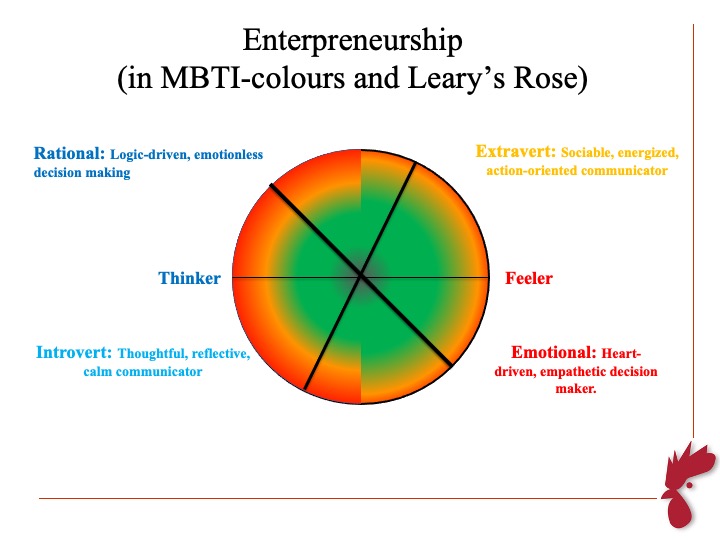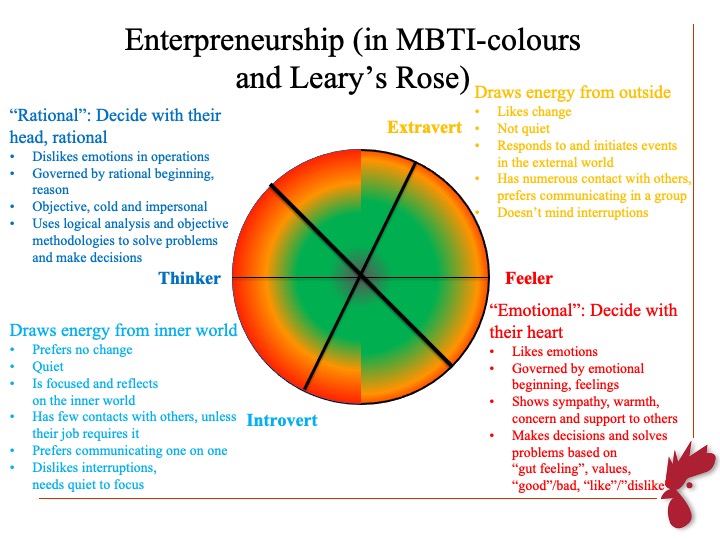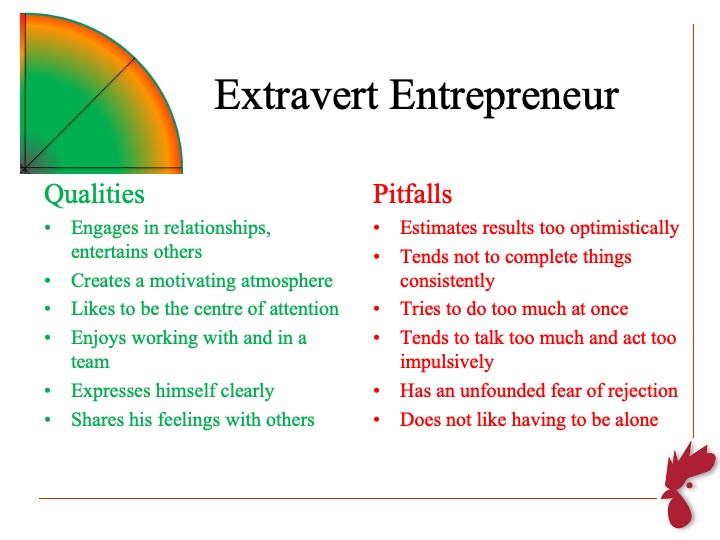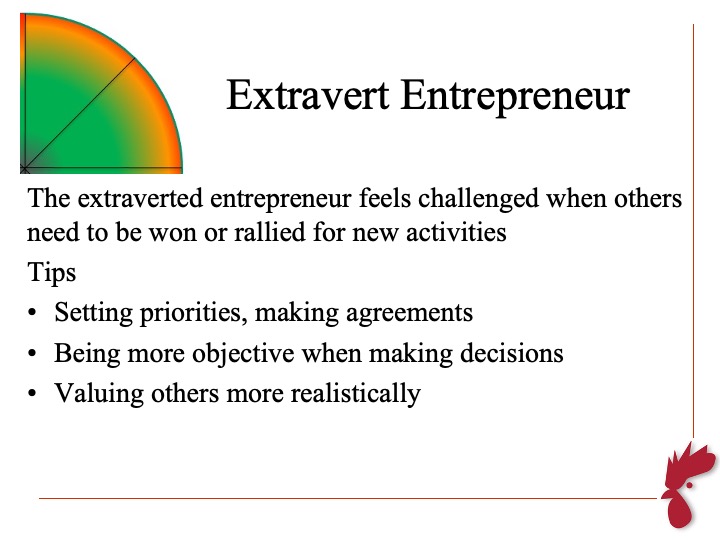Entrepreneurship in the startup team
StartUp companies stand or fall with the entrepreneurship of their founders. How do you get such a multi-dimensional concept measured and developed?
In this article, we describe several measurable Entrepreneurship Styles and indicate their implications. We also show how diversity in styles is useful for a Startup team. We conclude with a few examples of situations where understanding and allowing for diversity in styles of Entrepreneurship is beneficial.
Diversity is key
If you want to go fast, go alone. If you want to go far, go together.
In another contribution, we show how diversity in talents and development points among founders is a critical factor for the success, e.g. measured by the value at exit, of the StartUp.
In yet another contribution, we highlight the possibilities of using circumplex interaction models (the most popular is Leary's Rose) to make the thoughts, emotions and behaviour of the individual and the team addressable and coachable.
Style of entrepreneurship is also measurable and coachable
Roelof et al (2022) use the above-mentioned Rose of Leary, to describe the most prominent styles in entrepreneurship.
Leary's Rose is based on Jung's theory that distinguishes Extraversion from Introversion and sets Thinkers versus Feelers. Readers familiar with the MBTI will no doubt recognise the terms. The MBTI is also partly based on Jung's theory. Other pages on this website provide more info on the use of the MBTI and Leary's Rose in HighTech StartUps.
Roelof et al (2022) developed a short, but measurement-reliable, forced-choice questionnaire in which one indicates which of four descriptions apply most and least to an entrepreneur (in a self-description or description by others). In developing it, they could use the many and various approaches and themes based on the circumplex models. The questionnaire, and variants in use, fit entirely within the research tradition of the circumplex models and were refined over years of research, workshops and papers. The questionnaire has since been completed by many thousands of people and shows clear differences between entrepreneurial profiles and a similar managerial population.
Rational Entrepreneurship is guided primarily by rationality, objectivity. Emotions are considered a nuisance.
You can see and hear the Extraverted Entrepreneur! He initiates a lot of action and is in direct contact with the outside world.
The Emotional Entrepreneur shows warmth qnd empathy for others. Values, including those of the team, are important in decisions.
Introverted Entrepreneurship is highly focused, reflective. He interacts with fewer others but these can be much more profound.
No one has just one of the four entrepreneurship styles. Everyone has a mixture of the four styles. Only in one entrepreneur, one or another style will prevail, followed by one or another. So every entrepreneur scores from (very) low to (very) high on each of the four styles.

...Or with some more explanation...

Entrepreneurs differ markedly from the general occupational population: namely, more striving for dominance ( + 30%) and influence (+ 15 %), less for conformity (- 20 %). Turns out also that entrepreneurs, on average, in their working environment are less focused on pleasure and more on control, results and only a little on harmony (- 30%).
Why is diversity in the start-up team important?
Because every entrepreneurial style has its strengths and development points. And because in StartUps, important decisions have to be made permanently under great pressure. And then diversity helps to make adequate decisions.
We list in the figures below as an example what an Extravert Entrepreneurship Style can bring to the team and where its development points lie.

Team development involves recognising how the founders differ from each other and learning to leave room to use each other's strengths. To this end, creating and discussing a team profile is also often an AHA experience.

After understanding and mutually respecting complementarity, we will apply this, and possibly other applications of Leary's Rose, to some real-life situations and decisions. In it, we will turn the insights into practice and consolidate the skills. For example, how do we better determine our priorities in the future? How do we become more effective in tapping into new funding? Or, what should we take into account in our next hires to achieve optimal team composition?
In summary, by clarifying and coaching the various entrepreneurial styles, the Starter Team decides better, executes decisions taken more consistently and follows up actions better. This adds value for the start-up team, staff and investors, and hopefully in time... customers.
Would you like to talk to us about this? Very gladly, contact us via the contact form.
References
Henk Roelofs, Adriaan Nieuwenhuis and Willem Schreuder; An (entrepreneurial) behavioural style test using prototype theory and fuzzy logic theory - Academia Letters, 2022

